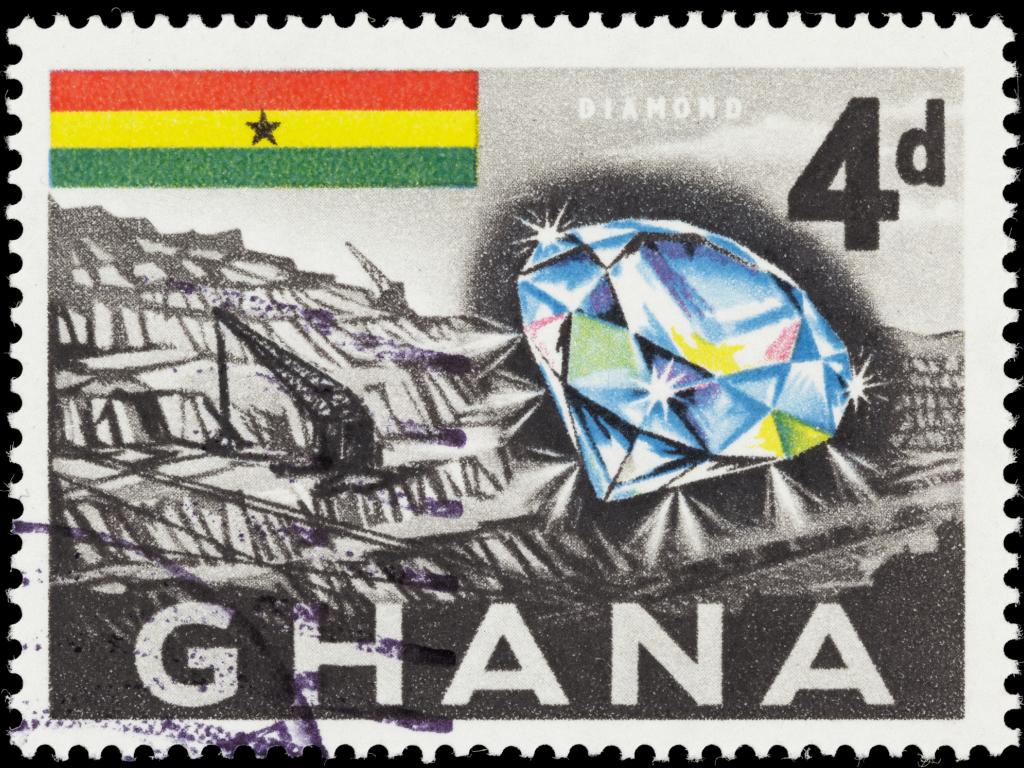Neglect of Mining Areas: The case for Equitable Distribution of Resource Revenue

Once called the Gold Coast, Ghana is endowedwith various minerals. Ghana is the ninth leading producer of gold in the world and the second in Africa.The sector currently contributes to government coffers through the payment of mineral royalties and corporate tax. The contribution of revenue from mining towards Gross Domestic Product has since 2007 increased from 13.65% to 21.29% in 2010.
However, the extraction of these minerals has not generated wealth for mining communities in Ghana. The state of mining towns in Ghana, such as Tarkwa, Prestea, Kenyase, Obuasi and Dunkwa-on-Offin tells the story of abject neglect by the authorities. Residents of these towns are increasingly voicing their dissatisfaction with their living conditions and lack of infrastructure and development. As a means of protest, the Minister for Lands and Natural Resources, Mr. Asumah Kyeremeh was prevented by residents from accessing Tarkwa on 26thSeptember 2018.
Ghanaian mining communities do not have access to basic infrastructure and amenities such as clean drinking water and well-maintained road networks. Unemployment is rife in these areas. Mining communities are also exposed to disease, the hazards caused by abandoned mining pits and environmental pollution. Research done by the Wassa Communities Affected by Mining (WACAM) in 2010 in the mining townsTarkwa and Obuasi revealed the pollution of about 250 river bodies through mining activities. Considering the significant revenue generated by the mining, mining communities expect to see more benefits from mining.
The Ghanaian Consolidated Fund created in terms of the Ghanaian Constitution,[1]holds all revenues received by the Ghanaian government, including the revenues generated from the extraction of mineral resources. Government uses the Consolidated Fund to finance its expenses. By placing revenues generated from the extraction of mineral resources in the Consolidated Fund, it gives effect to the Ghanaian Constitution, since the Constitution vests all mineral resources in the President to hold in trust for the benefit of all Ghanains.[2]However, based on the level of development in mining communities, it is clear that the Consolidated Fund has not been helpful in distributing the benefits of mining to mining communities.
In response to this situation, the government created the Mineral Development Fund[3]to hold 20% of the royalties received from mining companies.[4]The purpose of the establishment of the Mineral Development Fund Act is to provide financial resources for the direct benefit of mining communities. Since the conditions in mining towns have not improved over the last couple of years, it seems as if the Act has not achieved its purpose. Seemingly, the state has failed to use the revenue generated from mining for equitable development.
It is therefore necessary to develop a new model that takes into consideration the needs and interest of the mining communities. A new fund, akin to the Road Fund[5], the District Assemblies Common Fund[6]and the Ghana Infrastructure Investment Fund[7],must be created and administered by a body independent of the state. The need to look at an independent administrative body stems from the inability of the political authorities to transform mining communities through mining revenues.
The new independent body should consist of representatives of the GhanaInstitute of Surveyors; Institution of Engineers and Technology, Ghana; Ghana Institute of Architects; Civil Society Organisations and representatives from the mining communities.The members representing professional bodies must adhere to professional standards and codes of ethics and are subject to the control of parent bodies. The contravention of the rules of the professional body will lead to a member being sanctioned and removed from the body. A body consisting of professionals would therefore be better equipped and better monitored when it comes to the management of mining revenues.
The proposal made here would require incorporating clauses into mining agreements that permit setting aside a percentage of the resource revenue for the new fund to cater for the developmental needs of the mining communities. The Auditor-General is mandated under the Constitution to audit public institutions in Ghana and bodies created by an Act of Parliament, including the type of fund proposed here.[8]This provision may however involve government’s intervention in this supposedly independent fund. It is proposed that the Auditor-General should appoint another independent body, as provided for in the Constitution,[9]to audit the expenditures of the body. The independent auditor’s report must be submitted to Parliament for debate and deliberations.[10]Where Parliament finds any issue arising from the report, it shall appoint a committee to deal with the issues arising from the report.[11]
The action of the people of Tarkwa has rekindled the debate concerning the need for equitable development of all parts of the nation. The Ghanaian government has been reminded that citizens cannot live in areas endowed with natural resources and be lurched in misery and poverty. The debate must continue to enable the equitable development of mining communities in Ghana.
Written by Chris Adomako-Kwakye.
[1] Article 176 (1) of the 1992 Constitution of Ghana (“Constitution”).
[2] Article 257 (6) of the Constitution.
[3] The Fund is created in terms of the Mineral Development Fund Act 912 of 2016.
[4] S 3 of the Mineral Development Fund Act.
[5] The Road Fund is created in terms of the Road Fund Act 536 of 1997.The fund provides money for maintenance and rehabilitation of roads in Ghana.
[6] The District Assemblies Common Fund is created in terms of the District Assemblies Common Fund Act 455 of 1993.The fund makes funds available to assemblies to reduce poverty.
[7] The Ghana Infrastructure Investment Fund is created in terms of the Ghana Infrastructure Investment Act 877 of 2014.The purpose of the Ghana Infrastructure Investment Act is to provide aid for the development of infrastructure in Ghana.
[8] Article 187 (2) of the Constitution.
[9] Article 187 (3) of the Constitution.
[10] Article 187 (5) of the Constitution.
[11]Article 187 (6) of the Constitution.
